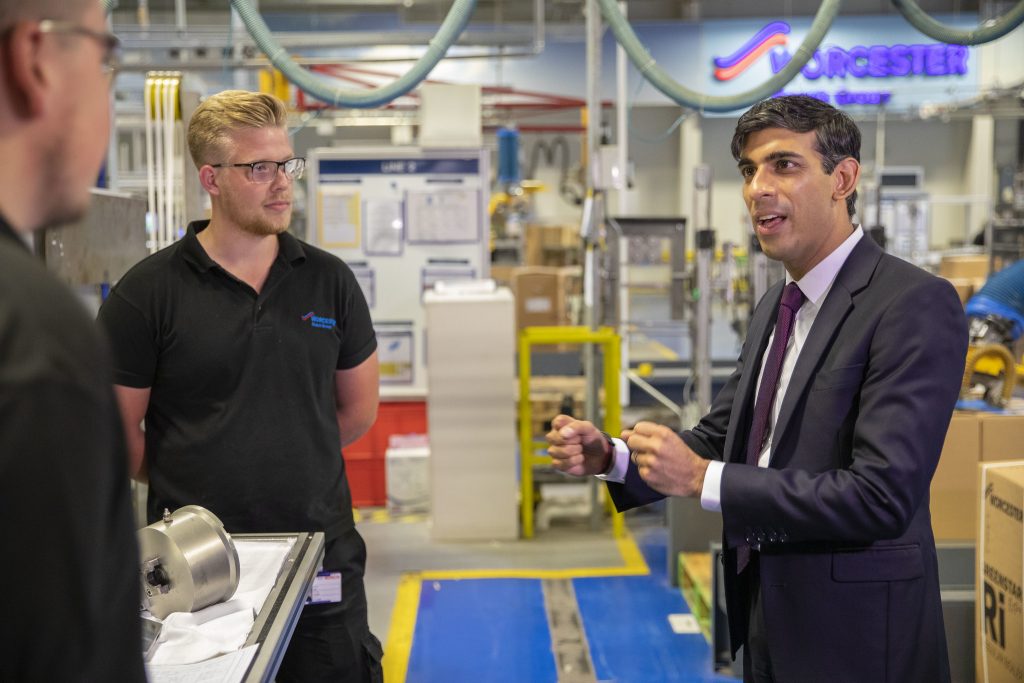
Government is being urged to scale back anticipated tax increases and bring forward greater incentives for manufacturers to invest in plant, machinery and training in this week’s Spring Statement.
The plea comes as firms in the sector continue to face rising cost burdens, particularly around raw materials and energy, plus persistent supply chain issues. WIth Chancellor of the Exchequer Rishi Sunak due to make his Spring Statement this Wednesday, business commentators have set out their key asks.
“The UK manufacturing sector urgently requires more long term incentives to boost investment,” said Chris Barlow, partner at accountancy network MHA. “The Spring Statement needs to be the time to get the ball rolling on this because a series of damaging tax changes are currently heading businesses’ way.”
The Chancellor has been expected to announce an increase in National Insurance on Wednesday, which Mr Barlow said would “drain away” funds that could be used to invest in plant, machinery, buildings and jobs creation, and should therefore be suspended.
Companies must also “brace themselves” ahead of two capital allowances – the Super Deduction and annual investment allowance of £1m – coming to an end in March 2023, he added. Mr Barlow called on the Chancellor to announce long term incentives to support manufacturing businesses to invest and plan for the future, and said: “One way he could do this would be to extend the Super Deduction to allow for longer term planning.”
Make UK has also previously urged the Chancellor to use the Spring Statement to delay the planned increase in National Insurance and said he must examine other ways to ease business costs and boost investment.
Further suggestions for the Chancellor from the manufacturer’s organisation include reinstating business rates relief for small firms and bringing forward the improvement relief and investment relief exemptions by 12 months. Make UK also calls for an extension to the Super Deduction scheme, with a view to making it permanent at the Autumn Budget.
The British Chambers of Commerce have set out a ‘five point plan to tackle the cost of doing business crisis’, which also includes delaying the National Insurance rise by one year alongside introducing a temporary energy price cap for small businesses and a moratorium – for the life of the current Parliament – on all policy measures that increase business costs, including no new business taxes or added regulatory burdens.
BCC Director General Shevaun Haviland said: “Business confidence is on the floor. Coming so soon after a Covid induced squeeze on cashflow and investment plans, the cumulative effect of rising raw material costs, soaring energy bills and other overheads is causing many firms to take cost reduction measures. This is weighing down on their ability to invest, recruit and grow.
“The Government must now fortify our economy for what will likely be some gruelling weeks and months ahead. It must prove it is serious about doing whatever it takes to support companies through these domestic and global economic shocks.”
Auditing firm PwC UK’s head of tax policy Jon Richardson echoed the view that the changing economic and tax landscape is making it challenging for businesses to “plan effectively with a reasonable degree of certainty”.
He said: “As the Super Deduction ends next April, businesses would benefit from a signal now on what the investment landscape, through for example capital allowance and incentives, will look like post April 2023. For businesses to plan investments and growth, the more certainty that can be given now the better.”
Deloitte head of tax and trade policy Amanda Tickel added: “Continuing the 130% Super Deduction beyond 2023, but restricting it to green capital investment, would be a good way to incentivise companies to make climate savvy investment decisions.
“In addition, we could see increased focus on research and development to incentivise companies to innovate more. Increasing R&D expenditure credit based on specific areas the government wants the UK to take the lead in, could attract or retain innovative companies in the UK,” she said. “The Government could also introduce a new ‘green’ patent box which would allow companies to pay a reduced rate of corporation tax on profits linked to the creation of new green products and services.”

